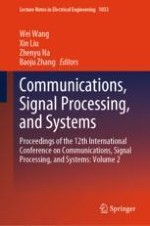2024 | OriginalPaper | Buchkapitel
Review on Teacher's Classroom Language Behavior Analysis Based on Clustering and Emotional Analysis
verfasst von : Lingling Lu, Hao Yuan, Shuya Yang, Lezhou Feng, Xiaoming Ding
Erschienen in: Communications, Signal Processing, and Systems
Verlag: Springer Nature Singapore
Aktivieren Sie unsere intelligente Suche, um passende Fachinhalte oder Patente zu finden.
Wählen Sie Textabschnitte aus um mit Künstlicher Intelligenz passenden Patente zu finden. powered by
Markieren Sie Textabschnitte, um KI-gestützt weitere passende Inhalte zu finden. powered by
